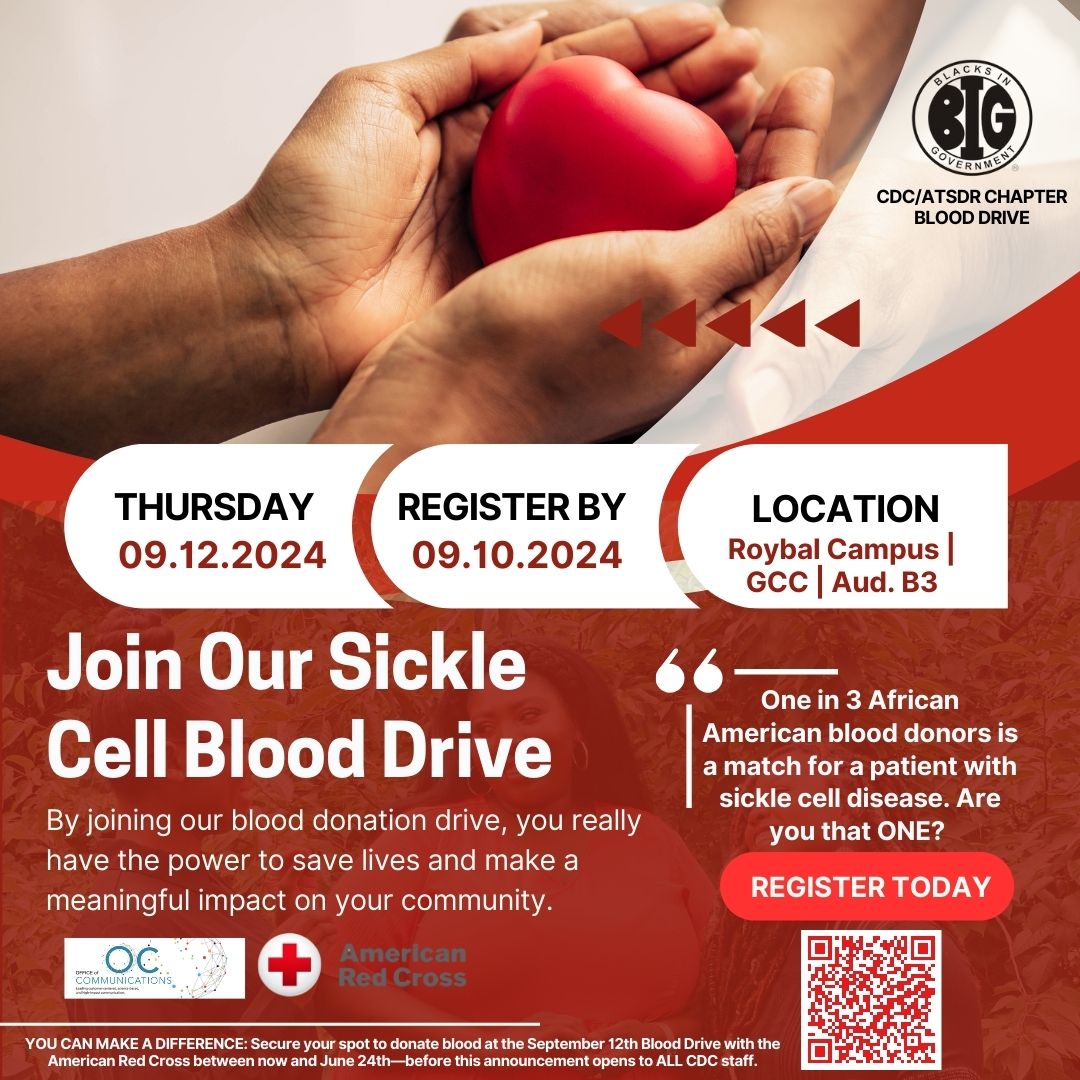 Sickle Cell Awareness takes place every year in September. This year, the CDC/ATSDR Chapter of Blacks In Government (BIG), Health and Wellness Committee —in collaboration with the Office of Internal Communication and Engagement (OICE), Office of Communications—is hosting a Blood Drive with the American Red Cross
Sickle Cell Awareness takes place every year in September. This year, the CDC/ATSDR Chapter of Blacks In Government (BIG), Health and Wellness Committee —in collaboration with the Office of Internal Communication and Engagement (OICE), Office of Communications—is hosting a Blood Drive with the American Red Cross
Thursday, September 12, 2024
Roybal Campus, GCC- Building 19, Auditorium B3
Here’s how you can help:
-
- Sign up to donate blood: African Americans make up 13% of the population, yet only 5% make up blood donors at the American Red Cross. Donors of color or similar ethnic backgrounds are often the best match for people with Sickle cell disease (SCD). SCD affects about 100,000 people in the United States and more than 90% are non-Hispanic Black or African American. Please consider signing up to donate on September 12. Click here.
- Share your story: We are seeking submissions from BIG members who have lived experiences with SCD to be shared on CDC Connects to encourage Black and other staff from minoritized populations to participate in the upcoming drive. While blood from ALL eligible donors (regardless of race and ethnicity) is needed, donations from Blacks/ African Americans are critically important to help people with SCD.
Don’t underestimate the power of your story. Sharing your lived experience can help others better understand SCD and inspire them to take action. If you are interested in sharing your lived experience with SCD, please fill out the following form by COB Monday, June 24, 2024.
About Sickle Cell Disease
Sickle cell disease (SCD) is a group of inherited blood disorders that can cause red blood cells to become hard and sticky, blocking blood and oxygen from reaching all parts of the body. This blockage can lead to intense pain (also known as a pain crisis), life-threatening infections, stroke, and other serious health problems. 
Data: About 1 in 13 Black or African American babies are born with sickle cell trait. And about 1 in every 365 Black or African American babies are born with sickle cell disease.
People who come from Hispanic, Southern European, Middle Eastern, or Asian Indian backgrounds can also have SCD.
Blood donations: Many people with SCD require transfusions (the process of putting new blood into a person’s body) every two to four weeks. Blood transfusions help relieve pain during a crisis and can prevent other complications by increasing the number of healthy blood cells in the body.
A person is more likely to have the most compatible blood match, and thus avoid transfusion-related complications, from a donor of the same race or similar ethnicity. One in three Black or African American blood donors are a match for people with sickle cell disease. Learn more.





